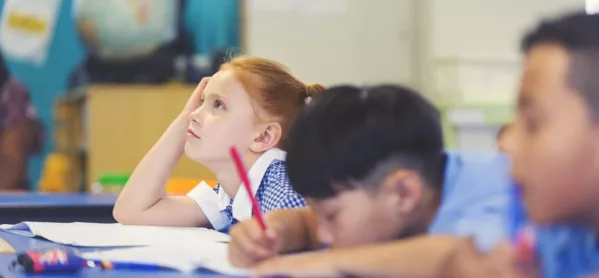- Home
- Teaching & Learning
- General
- Covid ‘puts pupils an extra month behind in maths’
Covid ‘puts pupils an extra month behind in maths’

Disadvantaged primary school children have fallen behind their more affluent peers in maths by an extra month as a result of the first Covid lockdown, a new study suggests.
The attainment gap between poorer school pupils and their classmates has grown in the subject since schools were first closed due to Covid, according to research published today by the Education Endowment Foundation (EEF) charity.
And the fact that the gap did not shrink during the autumn term of this academic year suggests that it is unlikely to close without intervention over the coming months, researchers have said.
Exclusive: Half of Covid catch-up tutoring yet to start
Disadvantage: The attainment gap ‘may never close’
Revealed: The GCSE subjects with the biggest disadvantage gap
Learning loss: Five key findings from new report
The study found that the gap did not shrink or widen after schools returned at the start of September.
EEF chairman Sir Peter Lampl is now calling for significant government funding to mitigate the long-term impact of school closures and warns that failing to act now will be a “catastrophe” for disadvantaged children.
The impact of Covid school closures on disadvantaged pupils
The study is based on reading and maths assessment data collected by FFT Education from 132 primary schools in England in autumn 2019, before the pandemic, and in September 2020, after the first national lockdown, and then again towards the end of the autumn term.
It looked at the differences in progress between pupils eligible for free school meals and their peers in Years 2 to 6, rather than measuring the overall impact of school closures on learning loss.
Data from reading and maths assessments - PIRA (Progress in Reading Assessments) and PUMA (Progress in Maths Assessments tests - taken in autumn 2019 was used as a baseline to track the attainment gap.
Reading and maths tests were then carried out by these same pupils on their return to the classroom in September 2020, and then again towards the end of the autumn term of 2020.
The interim findings from the study show that pupils from deprived backgrounds have fallen further behind in maths - with the attainment gap widening by a further month since the onset of the pandemic.
But the research found no discernible change to the disadvantage gap in reading.
Sir Peter, who is also the founder of the Sutton Trust educational charity, said: “Today’s research gives us more evidence of the enormous impact school closures have had on young people, especially those from low-income homes.
“The research indicates the need for long-term, sustained support for schools as they work to accelerate the progress of their disadvantaged pupils.
“To mitigate against the long-term impact of lost learning, large government funding is required. The cost of failing to act now will be a catastrophe for young people from low-income homes.”
Prime minister Boris Johnson has already made £1.7 billion of catch-up funding available in England to help children who have faced disruption from school and college closures due to Covid-19
Professor Becky Francis, the chief executive of the EEF, said: “The pandemic has brought the significance of social and educational inequality into sharp focus.
“Research studies like this one are providing clear evidence that substantial existing gaps have grown further due to the disruption to learning caused by the pandemic.
“In strategising an approach to recovery, we are presented with the opportunity to go beyond restoring the learning lost during partial school closures, and work towards rebalancing the scales for disadvantaged pupils.”
Tiffnie Harris, primary specialist at the Association of School and College Leaders (ASCL), said: “This research confirms what we feared - that the education attainment gap between disadvantaged children and other children has grown during the pandemic.
“This latest research will not come as a surprise to primary leaders, who know the learning needs of the children in their schools better than anyone else.
“This report reinforces the pressing need for a robust and fully funded education recovery plan in which school leaders must be in the driving seat of deciding what will work best for their pupils.
“This recovery plan must take the opportunity to address the attainment gap which already existed before.”
You need a Tes subscription to read this article
Subscribe now to read this article and get other subscriber-only content:
- Unlimited access to all Tes magazine content
- Exclusive subscriber-only stories
- Award-winning email newsletters
Already a subscriber? Log in
You need a subscription to read this article
Subscribe now to read this article and get other subscriber-only content, including:
- Unlimited access to all Tes magazine content
- Exclusive subscriber-only stories
- Award-winning email newsletters
topics in this article



